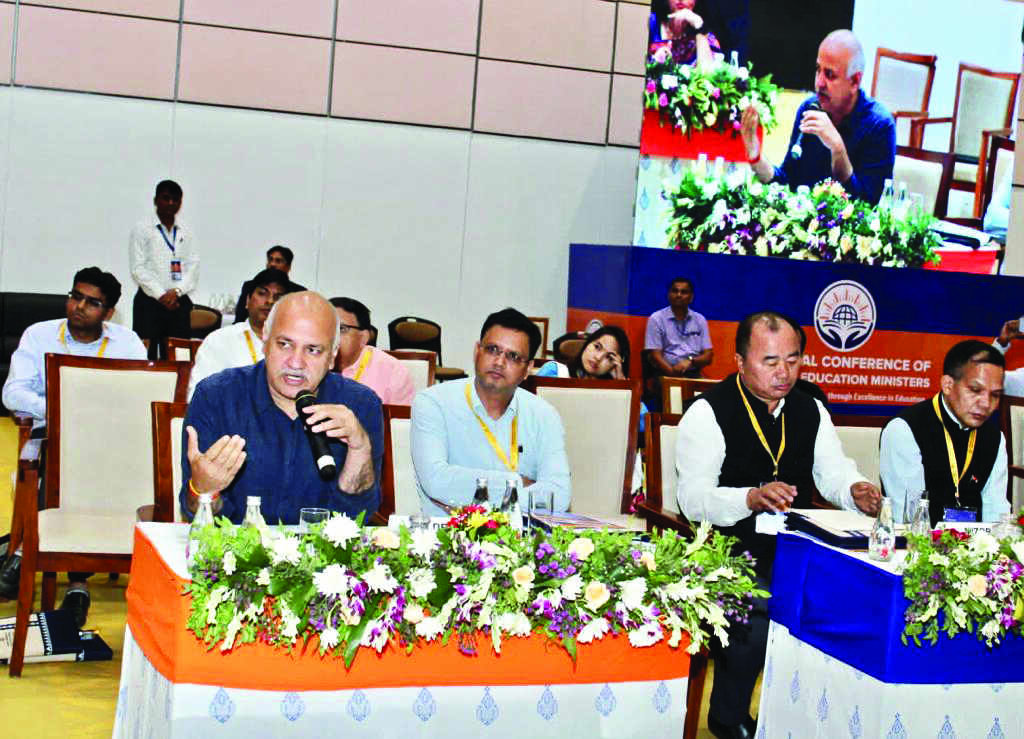'State-level edu laws major hindrance in implementing NEP'

New Delhi: The age-old state-level education laws are a major hindrance in implementing the new National Education Policy (NEP) in true spirit, and without a new legal framework, it will be merely be a set of guidelines, Delhi Deputy Chief Minister Manish Sisodia said on Thursday.
The minister said the pre-primary education system in India lacks framework, is not well regulated, and varies within states itself.
Sisodia, who is also Delhi's education minister, said unlike the national capital, the condition of 95-98 per cent of government schools across the country is extremely poor barring a few "showpiece schools" in each state.
"The recommendations of the recently introduced National Education Policy are progressive, but it needs an enabling legal framework to realise its full potential. There are many provisions in different state education laws which are restricting the proper implementation of the NEP," he said during the National Conference of School Education Ministers in Gandhinagar, Gujarat.
"There is a need for a new legal framework for NEP to align it with the forward looking provisions of the NEP 2020. Otherwise, the policy will not be able to cross the hurdles created by existing legal provisions and age-old practices," he added.
Sisodia said there are two major barriers in the way of smooth implementation of the NEP.
"First, the age-old rules and regulations governing the functions of the education departments across the country. Some of the rules and regulations created just after independence continue to be in existence even today. These are not only irrelevant in present times, but are a hindrance in the way of NEP. Therefore, a new legal framework is needed to make the new education policy successful," he said.
"For example, in the Gujarat Primary Education Act 1961, primary education (class 1-7) is compulsory, but parents are legally responsible for this. There is no mention of curriculum, training and assessment in this Act," he said.
"Similarly, the Primary Education Act in Punjab, made in 1960, is also similar where parents can be compelled to send their children to school and parents can be fined for not sending them (to school)."
"Uttar Pradesh's Basic Education Act made in 1972 talks about the education board there, while Kerala's Education Act made in 1952 talks about regulating aided schools," he added.
The two-day long National Education Ministers' Conference began in Gandhinagar on Wednesday with a focus on implementation of the new NEP.
The minister said the second barrier is related to practice legacy.



